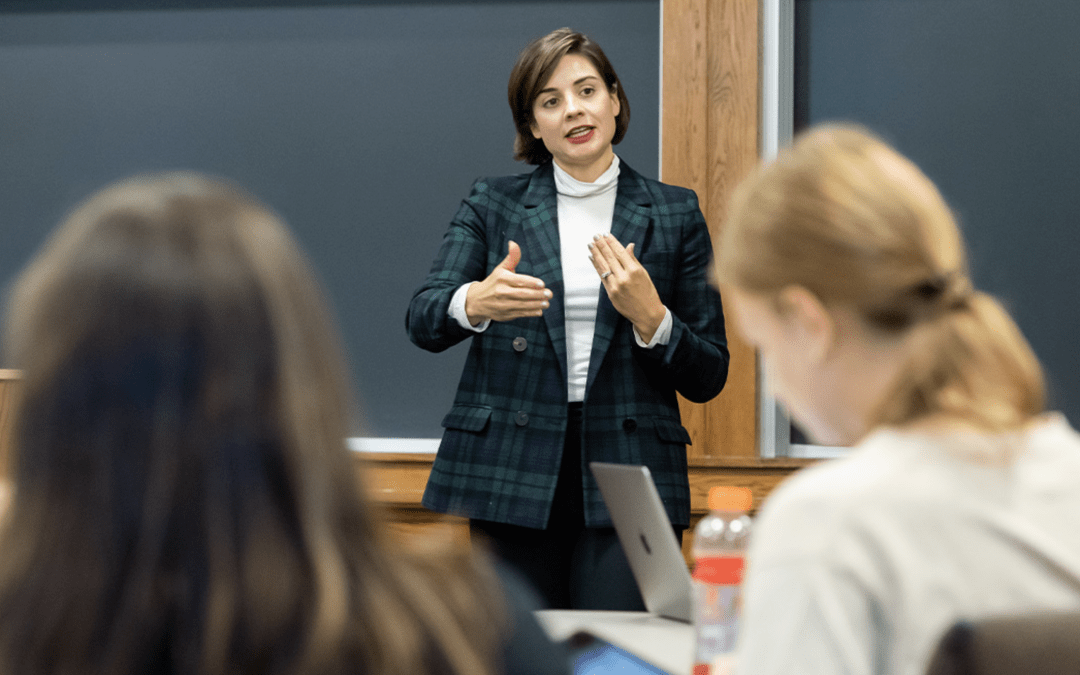As an undergraduate, associate professor Megan Stewart took a class on Middle East politics and became interested in how a political movement, like the Muslim Brotherhood, was providing social services. She pursued that inquiry by going to Egypt herself to do interviews. That was the first field work of what has become her academic expertise—the intersection of political violence and overlapping systems of governance. Her continuing research has taken her to Baalbek in Lebanon to study Hezbollah, as well as to Timor-Leste, Australia, Sweden, Portugal, and the UK.
Stewart, who joined the Ford School faculty in 2022, brings that combination of real-world experience and intellectual acumen to her new role as director of the International Policy Center (IPC). (Former director John Ciorciari is on leave this academic year.)
She has examined Black political leadership in the aftermath of the Civil War and the rise of female innovators in post-WWII America, as well as topics as diverse as land distribution in China, Zimbabwe, Vietnam, Eritrea, and Colombia; the social policies of insurgent groups; and even the implementation of the metric system in revolutionary France. Her research ultimately rests at the nexus of political violence and attempts to radically redistribute social, economic, and political power.
“My motivation has been to find out what is the relationship between redistributive projects and political violence? Under what conditions do political actors attempt challenging and complicated redistributive projects? Under what conditions are redistributive projects successful, and when they fail, why? Is there a particular element that drives it one way or the other?” she explains.
“The Ford School has a real expertise and history of excellence in social policy, which I consider as policy that takes social inequalities seriously. I’d like to think that in the context of civil war and political violence, my research is doing the same.”
Stewart’s understanding of those recent and historic movements, and their successes and failures, can inform new policy on some of the most pressing issues, like how to think about climate change, the role of climate reparations, and the distributive implications thereof. “Climate reparations have the potential to challenge existing distributions of economic power. Because I believe in these programs, I want to know the conditions under which they are likely to be successful. Under what conditions do the policies last? What is the possibility for backlash, especially violent backlash?”
“All of these questions, and almost all forms of political violence, are intimately related to social inequalities. I want to turn to evidence-informed policy when we see exclusionary networks, especially those that use political violence to exclude and subjugate, to learn how they can be changed in meaningful ways.”
She hopes students working with the IPC can answer some of those questions with her trademark combination of ongoing research and experiential learning opportunities.
This content, by Daniel Rivkin, is reposted here with permission from State & Hill, the magazine of the University of Michigan’s Gerald R. Ford School of Public Policy.
Megan Stewart joined the Center for Political Studies in 2023. She recently published an intellectual history of the evolution of civil wars research for the 25th anniversary edition of the Journal of Civil Wars. She called this essay the most personal work she has yet written.


